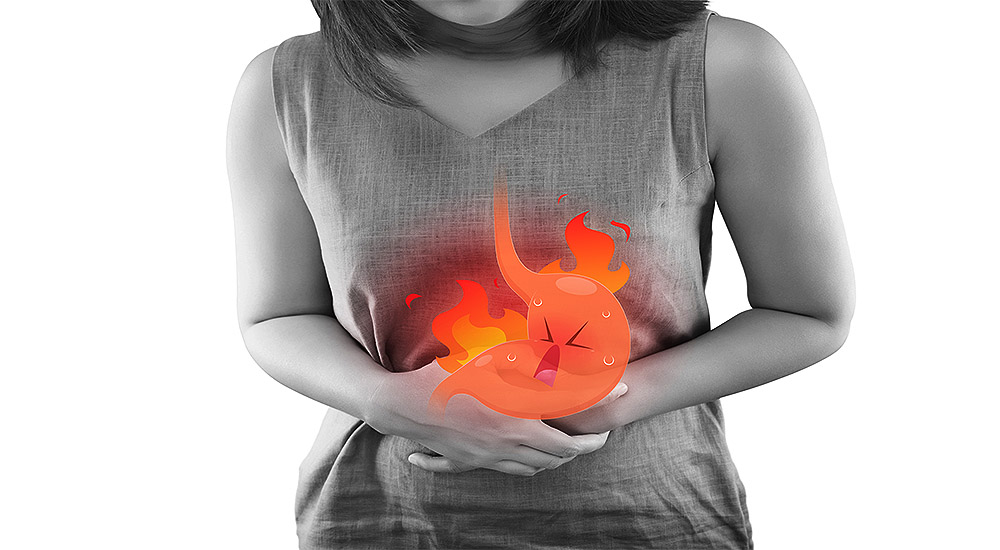Digestive Problems and Root Cause Medicine

Digestive Problems and Root Cause Medicine
In honor of the launch of our new name, Root Cause Medical Clinic, I wanted to write about the most common complaints patients come in to see us about and what we do that is so effective and different as compared to what most other clinicians do.
Sometimes I don’t realize how unique our thought process is until I’m speaking to a patient about their problems and frustrations regarding their health. This was one of the reasons we changed our name; we have always discussed our approach of “getting to the root cause” with our patients, and we have found the concept is not only instantly comprehended for its meaning, but most realize they have never been evaluated from that viewpoint before. When they hear how Root Cause Medicine works and experience the thought process as we review through their personal health history, one for one they feel it makes sense and, once they learn of our success rate, are excited to begin the program.
According to a recent survey, 74% of Americans are living with digestive symptoms such as diarrhea, gas, bloating, and abdominal pain. Seventy-four percent! Even considering the fact digestive problems are the number one problem for which patients come to see us, I still found that percentage surprising.
The most common digestive problems are:
- IBS/IBD
- Acid reflux (affects 45% of the world’s population), heartburn, GERD
- Constipation
- Bloating
- Gas
- Celiac disease
- Crohn’s disease
- Colitis
- Ulcerative colitis
Unfortunately, digestive problems are often ignored, sometimes for years by those suffering. Why? Based on my experience, digestion is not something patients like to talk about; they find it embarrassing. The embarrassment combined with a lack of appreciation of the importance of the digestive tract, and you have a good reason to ignore digestive problems for as long as possible. Even when they come into the office for their initial consultation, patients with digestive complaints frequently preface a response about their digestion with: “You probably don’t want to hear about this, but…”
I have learned the reason doctors “miss” discovering digestive problems is because they don’t ask the right questions.
Here’s an example: You can ask someone if they’re constipated and they’ll say no. You can ask the same person how often they move their bowels and they’ll say 3 to 4 times per week! Are they constipated? You bet!
Just this past week a patient said she moved her bowels whenever she went to the bathroom. At first, I didn’t fully understand what she meant. Of course, her bowels moved when she went to the bathroom, but how often is that I again inquired. “When I go to the bathroom”, she repeated. This wasn’t getting me anywhere, so I phrased it another way. “Do you poop more than once in any given day, and if so how many times – please give me a number.” That question got me the data I required: three to six times per day was her reply!
I’ve just reviewed two different extremes, constipation and diarrhea, that upon initial questioning of the patient wasn’t revealed. I had to dig to get accurate information.
Getting back to why individuals ignore their digestive issues, another reason is that they really don’t know that what they’re experiencing is abnormal.
Initially, the average American with heartburn, as an example, will just take an over-the-counter antacid. If that seems to “work” they’ll simply continue taking the medication, not giving it another thought why they developed the heartburn or what it might mean about their health.
Commercials “tell” us taking drugs is the solution and
we begin to believe it’s the truth.
Does the individual know heartburn could mean a serious infection in their stomach that could later lead to stomach cancer? No.
Do they know heartburn likely means they are eating a food that is creating a spasm in their stomach with the result stomach acid shoots up their esophagus, potentially leading to an ulcer? No.
Do they know taking antacids, be it over the counter or prescription, creates imbalance indigestion, leading to more serious absorption issues and allergy issues? No.
Do they know PPIs (proton pump inhibitors) such as Prilosec, Prevacid, Zantac, and Nexium, prescribed for chronic acid reflux have serious side effects, including an increased risk of SIBO (small intestine bacterial overgrowth) and the resistant bacterial infection, C. dificile? Unlikely.
Do they know these same PPIs decrease the good bacteria populating their microbiome, a diverse population of 100 trillion organisms in the gut giving strength to the immune system, and preventing a host of degenerative diseases? Most definitely not.
Diminishing acid in the stomach upsets the acid/alkaline balance of the gut, creating an environment that encourages the growth of bad bacteria and an unhealthy microbiome. Reducing acid in the stomach also creates poor digestion of proteins, allowing abnormally large protein fragments to enter the small intestine, leading to increased risk of food sensitivities and allergies.
What does the digestive tract do?
When you think of digestion you tend to think of the basics: how do I feel after I eat, do I get stomach aches, gas, heartburn, bloating, constipation, diarrhea? These are the basics and what the average person associates with digestion and the actions of the digestive tract.
But what about this list? Do you tend to think of the following symptoms as associated with a poorly functioning digestive tract? Give a look:
- Fatigue
- Weight gain
- Weight loss
- Weak immune system
- Autoimmune disease, due to an overactive immune system– there are over 100 including Hashimoto’s thyroiditis, celiac disease, rheumatoid arthritis, and Sjogren’s, to name a few.
- Headaches
- Sleep problems
- Inflammation – this includes any “itis” you’ve ever been diagnosed with including sinusitis, tendonitis, arthritis, gastritis, etc. “Itis” means inflammation.
- Degenerative diseases including diabetes, heart disease, high blood pressure, and cancer.
- Acne
- Rashes, dry skin
- Eczema, psoriasis
- And more…
Does the list above seem unbelievable?
For many, it would because most people don’t realize the importance of the digestive system. It’s called the second brain and it’s given that name for two reasons: one, it’s second in importance only to the brain, the most important part of the body, and two, it is very connected to the brain. Have you ever felt nervous or upset and developed an upset stomach or had to run to the bathroom? Then you’ve “felt” the gut-brain connection.
The digestive tract turns food into fuel. You have 10 trillion cells in your body, all of which need to be fed. Not appreciating the importance of feeding your cells is akin to not appreciating the importance of putting gas in your car (excluding electric vehicles!). If a friend’s tank was empty and he asked you if you knew what was wrong with his car, you’d think he was being quite foolish. “Everybody” knows a car needs fuel in order to function properly. Why then are we so surprised to discover that a correctly functioning digestive tract is critical for a healthy body? Why are patients so surprised that they feel better when “all we’ve done” is change their diet?
They’re surprised because although we appreciate the need to put correct fuel in our automobiles, we have never really been taught the critical association of “correct” food with “good” health.
Instead, advertisers encourage us to “splurge” on the coffee drink with 3 inches of whipped cream, and tell us we “deserve” a candy bar in the mid-afternoon when we start to get tired. The fast-food industry tells us food is “all about” convenience and cost, and the millions they spend on promotion have us believing it – If you’re hungry, stop at the drive-through and eat – it’s cheap and fast.
A new commercial just came out for a junk food muffin. It pictures a busy mom with a few kids. She comments that her children ask her to make the eggs in the morning and her comment is: “I’m not that kind of mom.” Wow, I can see all the busy moms watching that thinking, “Oh good, they get me, it’s okay to feed my kids pre-packaged crap”. I’m sorry, but no it isn’t – don’t fall for that. They just want your business; they don’t care about you or the health of your kids.
We don’t get the message that Food = Information. We aren’t told that everything we put into our mouths “tells” our body how to act and perform. And we’re certainly not told that if we don’t like how we feel the first place to start is to change what’s on the end of our forks.
Almost one for one patient are astounded how a simple change in diet can affect how they feel. “But we haven’t really done anything yet”, they often exclaim. “I don’t understand why I’m feeling better already”.
The digestive system is one of the areas we look to, as part of root cause medicine, regardless of whether the patient is complaining of symptoms. That may sound odd to you, taking into consideration our medical model of “treat the symptom”. But as you appreciate more and more how the digestive tract functions, our approach will make sense.
A perfect example is skin conditions. Traditional medicine applies topical crèmes to the skin itself. They think the rash or eczema or psoriasis or acne is the problem.
The skin condition isn’t the problem, it’s the symptom of the problem.
What I’m about to say epitomizes the difference between traditional medicine and root cause medicine. They apply a steroid to the skin that helps temporarily. Does it get to the root cause of the problem? Absolutely not. In fact, it actually weakens the system that needs support and bolstering, the digestive and immune systems.
In Root Cause Medicine we look at skin conditions and realize the digestive tract needs assistance. And when we treat the gut, the condition gets handled for good.
Did you ever see someone’s eczema that was permanently handled by a steroid crème? No, and you won’t. Most doctors will tell you the best you can do is “manage” the symptoms and there’s no cure. We disagree and we can prove it.
Another example is the condition of IBS or irritable bowel syndrome. Clearly a digestive problem but gastroenterologists typically tell patients they don’t need to change their diet. It still makes me incredibly angry when I hear this from patients. Whether it’s IBS, IBD, Crohn’s, colitis, ulcerative colitis, the answer is typically the same from traditional medical doctors and gastroenterologists to their patients – don’t worry about having to change your diet!
It doesn’t even make sense. What goes into the digestive tract? Food of course. How could it make no difference what you eat? And then, if any dietary recommendations are made, it’s often to eat soothing foods such as bread and milk, while avoiding spicy foods. Guess what the two most common food sensitivities associated with the digestive complaints mentioned above? Gluten and dairy. Therefore when dietary advice is given, it’s completely incorrect.
Is this the case with every gastroenterologist on the planet? No. But the vast majority do not believe that what their patient eats has anything significant to do with their digestive condition and in our opinion, and experience, they couldn’t be more wrong.
There is a lot to say about the human digestive system. It houses 70-80% of your immune system which gives strength to the 100 trillion organisms housed in your gut, call the microbiome. The microbiome’s health determines the health of your immune system and how well you defend yourself against disease, including genetic conditions, autoimmune disease and degenerative diseases such as heart disease, diabetes and cancer.
If you have any kind of digestive problem there’s a good chance we can get to the root cause of it and reverse it. I’m not trying to sell you on some “dream” that’s unattainable or cannot be retained; we truly have the tools in root cause medicine to regain the health of your digestive tract.
Without identifying and addressing the underlying root cause you’re never going to solve your digestive problem. Without making dietary and lifestyle changes, digestive problems will remain.
We are very honest and straightforward. We are not going to tell you that swallowing a probiotic or vitamin each day is going to solve your digestive problem. We won’t tell you that because it just isn’t true.
We want each and every patient to have the ability to meet with us and truly understand our approach before they pay for any visits. It is for this reason your initial consultation visit is complimentary.
We want success with our patients as much as they want to be successful. This is a team approach. We don’t just hand our patients a pill, far from it. We work extensively together to change diet, lifestyle, repair faulty organ function, and more. This doesn’t happen overnight and it won’t occur without help. Therefore we like to ensure each and every patient is ready to embark upon the adventure to regain, retain and reclaim their health with a clear understanding that it will require some work and change on their part. But they won’t be alone; we are right there with them.
As we like to say, with patient compliance, success is all but assured.
Please share this with anyone you know who has digestive problems.
Do you need help with your health?
We have the diagnostic and testing tools, the clinical experience, and a different medical approach to discovering the root cause of why you have the symptoms that are bothering you. As long as you are ready to make some dietary and lifestyle changes, we can help you. We will "hold your hand" through the changes, step by step, to make each step an easy one. We are located in Clearwater, FL, at 1000 S Ft Harrison, at the corner of Ft. Harrison Ave. and Magnolia St. There is plenty of parking space directly accessible from Ft Harrison. If it is not convenient for you to come to Root Cause Medical Clinic, we offer telehealth/telemedicine consultations to residents of certain states. Call us for details.
Contact us for a Consultation – Call 727-335-0400

Dr. Vikki Petersen DC. CCN
Founder of Root Cause Medical Clinic
Certified Functional Medicine Practitioner
Dr Vikki Petersen is a public speaker, author of two books, several eBooks and creates cutting edge content for her YouTube community. Dr Vikki is committed to bringing Root Cause Medicine and its unique approach to restoring health naturally to the world.
Ask a Doctor
Have a health concern you'd like to speak with a doctor about? Or just want clarity on a subject? Ask Us!


